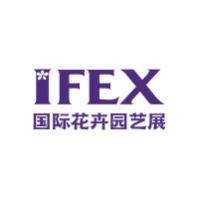Blooming in the Digital Age: How China’s Flower Industry Thrives Through E-Commerce and Instant Retail
The traditional global flower industry is undergoing a dramatic change in China. Driven by changing consumer behavior, technological innovation and the increase of “romance economics”, the flower industry is blossoming into a technology-driven market. From gift-giving trophies to everyday decorations, flowers are no longer confined to seasonal purchases, but have become a lifestyle symbol, redefining the boundaries of retail and logistics.
China's recovery from the Great Depression has rekindled “happy consumption,” with holidays such as Valentine's Day, Mother's Day and “520” (the Mandarin equivalent of “I love you”) becoming major consumption time. During these festivals, orders for Valentine's Day flowers on e-commerce platforms surged 56 times, and orders for “520” flowers surged 34 times, underscoring the emotional resonance of flowers. However, the real shift lies in the rise of the “self-loving” consumer.
Young urban professionals - 26-40 years old, highly educated and tech-adept are now the core demographic. For them, flowers are no longer just a gift, but an everyday treat (Sina Finance, 2024). A survey shows that 81.2% of online flower buyers have a bachelor's degree or higher, and personalized bouquets and eco-friendly packaging have become indispensable to their needs. Xiao Xiao, an office worker in Shanghai, arranges flowers every week to balance her fast-paced life: “A beautiful bouquet of flowers can make me happy for days, it's my own little blessing in a fast-paced life.” This shift reflects a broader trend where flowers are shifting to affordable and commonplace (Sina Finance, 2024).
E-Commerce and Instant Retail: Rewriting Industry Rules
The digitization of the flower industry began with e-commerce platforms such as Pinduoduo and Taobao, which achieved mass appeal by lowering prices and enabling home delivery. China's flower e-commerce market reached RMB 127.9 billion by 2024 and is expected to reach RMB 164.4 billion by 2025. However, the real game changer is instant retail.
Platforms such as Meituan and Ele.me address the industry's Achilles' heel: supply chain vulnerability. Flowers are perishable and fragile, requiring precise logistics. Delivery failures and wilting flowers once plagued consumers during peak seasons. For example, influencers apologized for substandard bouquets during a 2020 live sales fiasco, highlighting this shortcoming. The answer to instant retail? Hyper localized networks. By partnering with nearby florists and dispatching dedicated couriers trained in flower handling, platforms like Meituan achieved a 99.41% satisfaction rate during the 2024 “520” sale .
For brick-and-mortar stores, this model is also very practical. Chengdu florist Juan Yi almost closed her store in an e-commerce price war before instant retail. By focusing on high-quality customized flower arrangements through the platform, she has not only revitalized her business but also expanded with two new stores. “Quality trumps price wars now,” she says.
Challenges and innovations in the hybrid model
Despite volume growth, the industry continues to face problems. Seasonal surges in demand put pressure on logistics, while non-standardized products complicate quality control. Traditional florists were squeezed by online competition and initially struggled to adapt. However, hybrid models are becoming the solution.
Leading e-commerce companies are investing in cold chain infrastructure and AI-powered supply chains. In Yunnan, the center of China's flower production, innovative logistics methods such as “air + high-speed rail + cold storage” ensure that flowers reach consumers within 24 hours of being picked. Meanwhile, platforms such as Meituan are using data to analyze upstream production and guide growers to follow trends such as popular flower colors or eco-friendly packaging.
In this industry context, the IFEX China- Kunming International Flowers and Plants Expo (shorted as IFEX China) is of great significance. As an important event in the flower industry, IFEX China brings together high - quality flower enterprises, cutting - edge flower cultivation technologies, and innovative flower products. Here, industry insiders can communicate face - to - face with global flower suppliers, establish broader cooperative relationships, understand the latest industry trends, and grasp the market development direction. They can also admire various rare flowers and gain creative inspiration. Whether you are a flower cultivation enterprise, a distributor, a scientific researcher in the flower industry, or a flower art enthusiast, you can gain a lot from the IFEX China - Kunming International Flowers and Plants Expo.
September 19-21, 2025, Kunming, China, we sincerely invite all flower industry insiders to actively participate in the IFEX China- Kunming International Flowers and Plants Expo!
For more information about visiting or exhibiting, please contact [email protected], +86-10-5933 9349.
Sources:
- The Paper (2024). [鲜花“仪式感”解锁万亿生意:年轻人需要确定性]. Retrieved from The Paper. Available at: https://www.thepaper.cn/newsDetail_forward_23253866
- Jinbao Net (2025). [客流量销售额齐增 小鲜花“串起”大产业]. Retrieved from Jinbao Net. Available at: http://m.jinbaonet.com/life/life/2025/0206/2000174634.html
- Sina Finance (2024). [“鲜花经济”悄然绽放]. Retrieved from Sina Finance. Available at: https://finance.sina.com.cn/tech/roll/2024-06-29/doc-incakayt4260018.shtml
